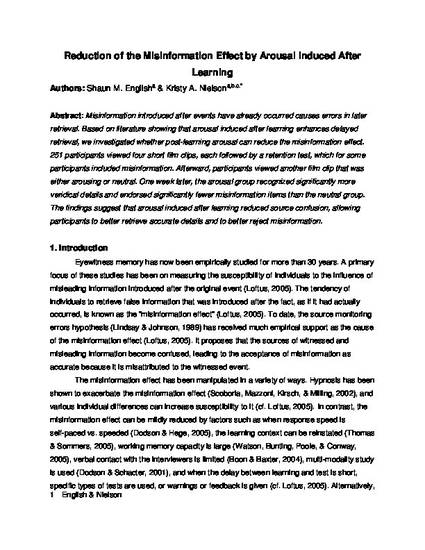
Misinformation introduced after events have already occurred causes errors in later retrieval. Based on literature showing that arousal induced after learning enhances delayed retrieval, we investigated whether post-learning arousal can reduce the misinformation effect. 251 participants viewed four short film clips, each followed by a retention test, which for some participants included misinformation. Afterward, participants viewed another film clip that was either arousing or neutral. One week later, the arousal group recognized significantly more veridical details and endorsed significantly fewer misinformation items than the neutral group. The findings suggest that arousal induced after learning reduced source confusion, allowing participants to better retrieve accurate details and to better reject misinformation.
Available at: http://works.bepress.com/kristy_nielson/27/

Post-Print.
Cognition, Volume 117, No. 2 (November 2010), DOI: 10.1016/j.cognition.2010.08.014.